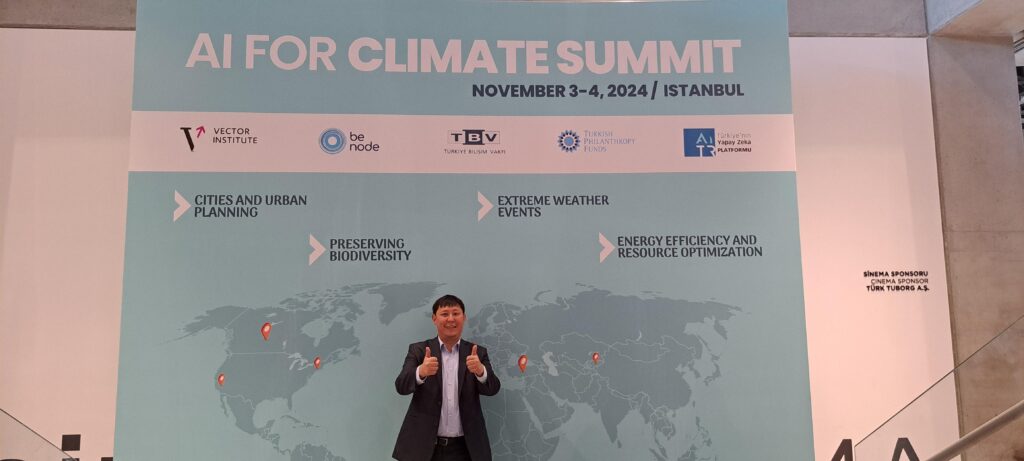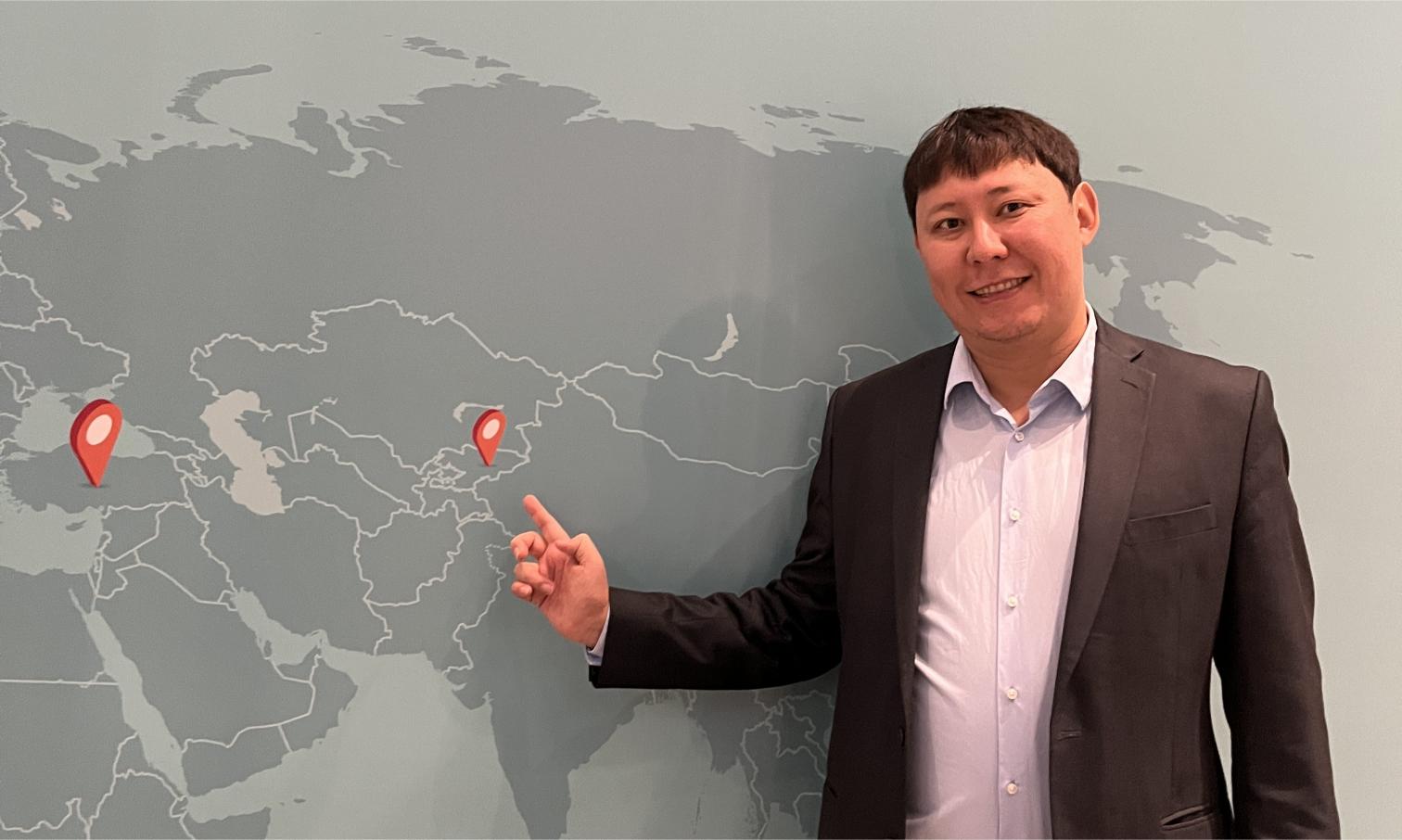
The recent AI Summit for Climate Action showcased an impactful discussion panel titled AI with a Focus on Sustainability Analysis, moderated by Dr. Sedef Akınlı Koçak, Director of Professional Development at the Vector Institute. The summit gathered notable experts, including Nick Beglinger, Co-founder of Cleantech21 Foundation; Saeed Valadbaygi, Executive Director of the Global Centre for Risk and Innovation; Iuliia Eyriay, Researcher at the Vector Institute; and Aziz Soltobaev, Co-founder of the Internet Society Kyrgyzstan Chapter.
Panel Insights: AI in Climate Emergencies and Extreme Weather Events
During the first round of the panel discussion, Aziz Soltobaev provided valuable insights into disaster management and resilience, particularly within Kyrgyzstan and the broader region known as the “third pole”—a region encompassing Central Asia’s mountainous areas that store significant glacial reserves and play a crucial role in global water supply.
Aziz discussed the research work his team has been conducting, focusing on the installation of IoT sensor networks in regions prone to natural disasters within Kyrgyzstan. This initiative has enabled the collection of high-grade, firsthand information crucial for training AI models to forecast natural disasters effectively. The insights gathered from these sensor networks have enhanced data accuracy and contributed to more reliable predictions, thereby improving disaster preparedness and response strategies.
Aziz highlighted how AI technologies can revolutionize the prediction, preparedness, and response phases of disaster management. Leveraging machine learning algorithms to analyze data from IoT sensors, satellite imagery, and climate models, AI has shown its potential to enhance early warning systems and facilitate timely evacuations, mitigating consequences. He cited successful examples where AI-driven tools have refined the forecasting of glacial melt and river flow patterns, reducing flood risks and supporting better regional resilience.
AI and Climate: Collaboration for Future Resilience
In the second round, the focus shifted to the importance of collaboration in deploying AI for climate solutions from regional and international perspectives. Aziz Soltobaev underscored the necessity for coordinated efforts among countries that share transboundary environmental challenges, such as water resource management. He emphasized that fostering alliances between governmental bodies, academic institutions, and tech innovators is paramount to advancing scalable AI applications that address climate resilience.
Aziz also shared his team’s vision to develop with the support of supported by Vector Institute scientists an AI model capable of forecasting the type and timing of natural disasters in high-altitude, mountainous countries such as Kyrgyzstan. This initiative aims to be scaled up to other countries representing the “third pole”— the region with the largest concentration of glacial ice outside the polar areas, which serves as a critical water source for billions of people.
Looking forward, Aziz expressed optimism about AI’s role in refining climate emergency responses through enhanced modeling and simulation capabilities. He called for increased cross-border collaborations that leverage shared data repositories and aligned policy frameworks to support sustainable progress.
The participation of experts like Aziz Soltobaev underscores the essential role AI plays in fostering resilience against climate challenges, marking a critical step forward for both Kyrgyzstan and global collaborative efforts in climate action.
The Global AI Alliance for Climate Action
This groundbreaking initiative brings together leading AI researchers from the Vector Institute and global climate organizations to develop long-term, innovative solutions to the climate crisis. The Global AI Alliance for Climate Action operates on the principle that combining AI’s potential with human ingenuity can unlock powerful innovations that equip frontline communities with the tools needed for a sustainable future.
The primary objective of the initiative is to source top talent, identify promising AI applications for complex climate challenges, and amplify their impact through strategic resource allocation and capacity building. The alliance centers on four key areas of impact:
- Cities and Urban Planning
- Agriculture and Biodiversity
- Extreme Weather Events
- Energy Efficiency and Resource Optimization
By focusing on these critical areas, the Global AI Alliance aims to foster long-term, scalable solutions that can benefit future generations.
Sponsors of the AI Summit for Climate Action
The summit’s success was supported by dedicated partners:
- Anchor Partners: The Vector Institute and Be Node;
- Fundraising Partner: Turkish Philanthropy Funds (TPF);
- Policy Partner: The Center for AI and Digital Policy.


